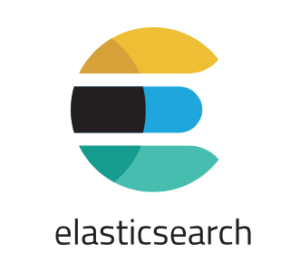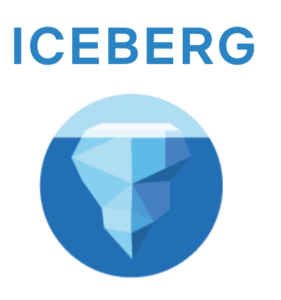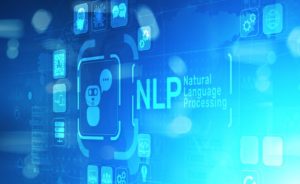

(DANIEL CONSTANTE/Shutterstock)
Today at Next, Google Cloud laid down the welcome mat to an array of big data software providers, enabling them to become first-class citizens in its cloud. The company also announced a slew of upgrades to its own wares, including its distributed analytics database BigQuery, while also unifying its analytics tools under the Looker brand and launching a new AI Agent.
Google may be the king of search, but many folks like Elastic Search, which has gained a substantial following over the past decade. The integration unveiled at Next today will see Google Cloud users gaining the ability to federate search queries to their data lakes using Elastic Search. Meanwhile, Google also added Looker support to the Elastic platform, which will enable users to embed search insights into their Looker apps.
The partnership with MongoDB will see new templates being offered that can improve customers’ ability to move data between Atlas, MongoDB’s hosted database service, and BigQuery. Google Cloud sees this as a path to enabling its Vertex AI capabilities to be used by MongoDB customers.
Collibra, which develops data catalog and governance products, is being integrated with Google Cloud’s data fabric offering, dubbed Dataplex. The integration will bolster joint customers’ ability to discover data, understand data lineage, and apply consistent controls on data stored across cloud and on-prem environments, the company says.
Palantir, the big data software provider for law enforcement, also announced that it will start using BigQuery as its data engine for Foundry Ontology, which the vendor refers to as the operational layer for its platform. The combination will connect “underlying data models to business objects such as plants, distribution centers, or equipment, enabling customers to more effectively manage and understand data from their most critical assets,” Google Cloud asys.
Google Cloud Rises
Google Cloud also made several enhancements to its big data analytics software offerings, including the capability to analyze unstructured and streaming data in BigQuery.
The capability to analyze unstructured data in BigQuery will undoubtedly meet the approval of users who work with a lot of text and image data. These folks gain the ability to access Google’s machine learning, speech recognition, computer vision, translation, and text processing capabilities directly from BigQuery’s SQL interface, the vendor says.
Google Cloud is also turning BigQuery into the place to bring streaming and historical data together. It’s doing this through the launch of Datastream for BigQuery, which will replicate data from AlloyDB, PostgreSQL, MySQL, and Oracle databases directly into BigQuery, thereby giving BigQuery users access to the latest data.
Google Cloud is known to tout the openness of its offerings, and that reputation was bolstered with today’s announcement that BigQuery now supports Apache Iceberg, the open source table format that solves many of the challenges associated with using the Apache Hive metastore format. What’s more, Google Cloud has committed to supporting the other two main open table formats, including Delta Lake, which was developed by Databricks and is sponsored by the Linux Foundation, as well as Apache Hudi.
There’s also some Apache Spark-related news coming out of Next. Google Cloud announced the preview of a new integration between Spark and BigQuery “that allows data practitioners to create BigQuery stored procedures using Spark that integrate with their SQL pipelines,” the company says. Google Cloud has also unveiled Vertex AI Vision, which the company bills as an end-to-end environment for building and deploying computer vision apps.
Looker for All
On the business intelligence front, Google Cloud announced that it’s putting all its BI tools and core AI and machine learning tools under the Looker umbrella. Looker and Data Studio, which was a Google Cloud tool introduced back in 2016, will now be called Looker Studio. Three versions of Looker Studio will be available. There will also be Looker Studio Pro, which adds support and governance.
“With this complete enterprise business intelligence suite, we will help you go beyond dashboards and infuse your workflows and applications with the intelligence needed to help make data-driven decisions,” Kate Wright, Google Cloud’s senior director of BI product management, writes in a blog post.
AI Agents
Finally, Google Cloud also unveiled a slew of new AI agents that it says will help accelerate the adoption of AI in organizations.
“While investments in pure data science continue to be essential for many, widespread adoption of AI increasingly involves a category of applications and services that we call AI Agents,” June Yang, Google Cloud’s vice president of cloud AI and industry solutions, writes in a blog post today. “These are technologies that let customers apply the best of AI to common business challenges, with limited technical expertise required by employees.”
Google Cloud already offers two AI Agents. Those include Document AI, which functions as an AI assistant to help with the handling and processing of documents; and Contact Center AI, which essentially is a chatbot that can route customers as well as analyze call center transcripts. Google Cloud launched one more AI Agent today. Translation Hub, as it’s called, provides self-service document translation among 135 languages.
Stay tuned to Datanami for more coverage of Google Cloud Next 2022.
Related Items:
Google Cloud Bolsters Storage with New Options for Block, Object, and Backup
Google Cloud Launches New Postgres-Compatible Database, AlloyDB
Google Cloud Tackles Data Unification with New Offerings
August 1, 2025
- Micron Expands Storage Portfolio with PCIe Gen6 and 122TB SSDs for AI Workloads
- DataRobot Announces Agent Workforce Platform Built with NVIDIA
- Menlo Ventures Report: Enterprise LLM Spend Reaches $8.4B as Anthropic Overtakes OpenAI
- Confluent Announces $200M Investment Across Its Global Partner Ecosystem
- Zilliz Sets New Industry Standard with VDBBench 1.0 for Benchmarking Real Vector Database Production Workloads
- Symmetry Systems CSO Releases Book on Data Security Strategies for the AI Era
July 31, 2025
- Google DeepMind’s AlphaEarth Model Aims to Transform Climate and Land Monitoring
- Elsevier Launches Reaxys AI Search for Natural Language Chemistry Queries
- Boomi Brings Sovereign Data Integration to Australia
- Scality Releases Open Source COSI and CSI Drivers to Streamline File Storage Provisioning
- Informatica Boosts AI Capabilities with Latest Intelligent Data Management Cloud Platform Release
- Helix 2.0 Gives Global Enterprises the Fastest Path to AI Agents on a Private GenAI Stack
- Anaconda Raises Over $150M in Series C Funding to Power AI for the Enterprise
- Supermicro Open Storage Summit Showcases the Impact of AI Workloads on Storage
- Observe Closes $156M Series C as Enterprises Shift to AI-Powered Observability at Scale
- Stack Overflow’s 2025 Developer Survey Reveals Trust in AI at an All Time Low
July 30, 2025
- Elastic Announces Faster Filtered Vector Search with ACORN-1 and Default Better Binary Quantization Compression
- Nutanix Named a Leader in Multicloud Container Platforms Evaluation
- RAVEL Expands Orchestrate AI With Supermicro-Based AI Workload Solution
- MLCommons Releases MLPerf Client v1.0: A New Standard for AI PC and Client LLM Benchmarking
- Scaling the Knowledge Graph Behind Wikipedia
- LinkedIn Introduces Northguard, Its Replacement for Kafka
- Top 10 Big Data Technologies to Watch in the Second Half of 2025
- Apache Sedona: Putting the ‘Where’ In Big Data
- Rethinking AI-Ready Data with Semantic Layers
- What Are Reasoning Models and Why You Should Care
- Top-Down or Bottom-Up Data Model Design: Which is Best?
- Rethinking Risk: The Role of Selective Retrieval in Data Lake Strategies
- What Is MosaicML, and Why Is Databricks Buying It For $1.3B?
- LakeFS Nabs $20M to Build ‘Git for Big Data’
- More Features…
- Supabase’s $200M Raise Signals Big Ambitions
- Mathematica Helps Crack Zodiac Killer’s Code
- Solidigm Celebrates World’s Largest SSD with ‘122 Day’
- Promethium Wants to Make Self Service Data Work at AI Scale
- AI Is Making Us Dumber, MIT Researchers Find
- Toloka Expands Data Labeling Service
- The Top Five Data Labeling Firms According to Everest Group
- With $20M in Seed Funding, Datafy Advances Autonomous Cloud Storage Optimization
- Ryft Raises $8M to Help Companies Manage Their Own Data Without Relying on Vendors
- AWS Launches S3 Vectors
- More News In Brief…
- Seagate Unveils IronWolf Pro 24TB Hard Drive for SMBs and Enterprises
- Gartner Predicts 40% of Generative AI Solutions Will Be Multimodal By 2027
- OpenText Launches Cloud Editions 25.3 with AI, Cloud, and Cybersecurity Enhancements
- TigerGraph Secures Strategic Investment to Advance Enterprise AI and Graph Analytics
- Promethium Introduces 1st Agentic Platform Purpose-Built to Deliver Self-Service Data at AI Scale
- StarTree Adds Real-Time Iceberg Support for AI and Customer Apps
- Gathr.ai Unveils Data Warehouse Intelligence
- Databricks Announces Data Intelligence Platform for Communications
- Graphwise Launches GraphDB 11 to Bridge LLMs and Enterprise Knowledge Graphs
- Informatica Named a Leader in the 2024 Gartner Magic Quadrant for Data Quality Solutions 16 Consecutive Times
- More This Just In…



























